|
Autumn Sale of Superior Educational Equipment To those of you who are fascinated by superior and amazing learning materials for our children, this is your season. Nature's harvest in the Autumn doesn't stop at pumpkins, apples and feijoas; educational equipment is also part of the harvest. As is usual with Nature's abundance and generosity, her harvest won't cost you anything more than the time it takes you to harvest it. Just as they have done for thousands of years, children express their in-built, genetic patterns of 'being human' with these treasures. Not surprisingly, the patterns children express using multiple natural materials lay the platform for literacy and numeracy. The child's urge (humans urge) to sort, order, pattern, group, connect, classify, seriate..., these patterns of play are the physical prerequisites for the more abstract versions of the same skills that will come on stream later: (3X3) X (4+13). There are other bonuses when we use natural materials instead of bought plastic stuff. These natural items themselves are the epitome of the mathematical patterns nature employs in creation, affording our children the chance to 'down load' these patterns, as well as the subtleties of colour, texture, smell and sound. Much of this play and learning happens naturally, outside, as in days of old: in the sandpit with the shells, under the trees with the acorns, in the hedge with the leaves.... Inside is a second best as far as most children are concerned, but objects of beauty inside add harmony and beauty - think of photos in the House and Garden magazine. Beautiful Containers for Beautiful Materials Even though the equipment comes for free, there will be a cost - you will have to source some beautiful containers to store your treasure. Beautiful baskets and wooden bowls can be found for bargain prices at garage sales and opportunity shops. A wooden bowl that is stained is easily sanded then oiled back to its original glory. If you want sets of containers, Trade Aid is a good place to look, a place where you know your dollar is doing more good than you thought a dollar could do. Baskets, Heuristic Play, Exclusion and Inclusion
I hadn't heard the term heuristic until about twelve years ago. I couldn't guess from the context what it meant, so instead of pretending I understood, I owned up; "What does that mean?" Turns out, the person using it wasn't too sure what it meant either, so I went home and looked it up. Heuristic [Hyoo-ris-tic, or, often yoo-] Adjective a: serving to indicate or point out; stimulating interest as a means of further investigation b: encouraging a person to learn, discover, understand, or solve problems on his or her own, as by experimenting, evaluating possible answers or solutions, or by trial and error - an heuristic teaching method c. of, pertaining to, or based on experimentation, evaluation, or trial and error methods. When you look at the definition, most of our learning in life is heuristic. 'Heuristic' does not apply exclusively to the infant 'treasure baskets' people tend to be referring to when they use this term. I am not in favour of those of us in early childhood using the term 'heuristic' - except in assignments - because jargon is exclusive, it excludes those not in the know. Using the word heuristic in conversation with parents, or in learning stories that parents will read, leaves most parents either wondering what on earth are 'they' are talking about. The parents who want to understand what we are talking about will have to ask us point blank, "What does that mean?" At that point they can feel included. Beauty and Education Beauty needs to part of every child's education, and all of the great educators understood this, from Plato, through to Steiner, Montessori (oh those beautiful geometric shapes), Loris Malaguzzi... and You. Two quotes from Plato: "The object of education is to teach us to love what is beautiful." The mathematical patterns of this earth are stunningly beautiful. Nature is always works in patterns: from the pattern of an atom, of a molecule, of a cell, of a crystal, of a shell, of a walnut... "The most effective kind of education is that a child should play among lovely things."
0 Comments
How will your children notice the changing seasons in a way that will give them real, authentic knowledge of the way Life unfolds in the place where they live and play? Although it isn't officially Spring here until September the 1st, you can feel it in the air and in the warmth of the soil. Spring is edging its way in already. Now is a good time to think about how to notice this 'edging in' with the children in an authentic way. How will your children notice the changing seasons in a way that will give them real knowledge of the way Life unfolds in the place where they live and play? Most of us 'did Spring' somewhere in our education. We were given the templates of skipping lambs to draw around, cut out and stick cotton wool on. They gave us yellow paper and a model we could copy, and if our 'daffodil' was good enough, we could put it onto the class freize of daffodils. We might even have been given pink crepe paper or pink tissues and shown how to make paper blossoms to tie onto a bare branch and hang from the ceiling. It is true, many of us enjoyed these busy-work activities, but the activities themselves carry absolutely no knowledge of the season called Spring. If we don't stop to think about real learning and authenticity, we too could pull these old ideas out and do them with our children, and we could think we 'had done' Spring. If we do that, yet another generation will have little idea of the magic of Spring, they will have little idea to no about what transformations are happening at 'their place'. It is the transformations taking place that constitute the real stuff of Spring, so our task is how to become aware of the unfolding in a way that is not forced. Fortunately, that has got easier as technology has got smarter. Recipe
In a centre where the teachers, owners and managers understand Belonging - Mana Whenua there will be at least one plant from each category growing in the centre grounds. If, however, your centre is bereft of plants, you will have to use the plants in the street by your centre - or you can bring branches in with you and keep them alive by feeding them with sugar in the water, and keeping the water clean. For the long term, wait until Autumn and plant for ecoliteracy and Belonging. If you feel you know nothing about trees, ask around in your community - tree lovers will be only too pleased to advise you.
Method
Child: "What is it?" You: "Not sure yet, shall we wait and see what happens? We could make a guess though?" Child: "What is if for?" You: "Good question. We might have to see what it is first and then we see if we can work that out. But look at that neat red bit there. I reckon you could guess what it is doing there." When you and the children have fallen totally in love with the miracle of Life unfolding, when you have it documented with marvellous photos - write it up and put it in your newsletter to remind parents what a stunning little planet we live on. Send it to 'The First Year's Journal' or to the 'Space' magazine, to inspire other teachers who are working out how to offer authentic opportunities in our quest for ecoliteracy and Belonging. PS: I don't know whether to give you a preview, or let you discover for yourself, but sometimes, when we have no idea what we are looking for, we can miss it even though it is staring us straight in the face. So here are a few hints:
Keeping the wonder alive as our children develop their love affair with Life Babies are natural scientists and ‘wonderers’. They wonder about everything, but not with their minds the way we do, their minds are in the very early stages of formation. Infants and toddlers wonder with their bodies and their senses. Here is a paradox worth exploring: it is all ordinary, and at the same time, it is all extraordinary. I know this paradox applies to information technology, to numeracy and to literacy. It has to, simply because it is all ordinary and extraordinary. However, I want to go back to basics because if you don’t have a good grounding in the basics, what follows can be very precarious. Basically, we are a part of the biosphere of this planet. As far as we know, we are the one species which, as a part of the creation, can reflect on and wonder at the creative process. That is, we can wonder at the Life on this planet. For adults, it is in the reflection and the wondering that the extraordinary is revealed. Take rain for example. Most of us have been heard to moan about the rain. That’s us responding in our ‘most ordinary mode’. In our ‘extraordinary mode’ we will wonder at the moisture in this Earth’s finite water system being evaporated into vapour, vapour gathering in the sky and returning to earth to keep gardens watered and plants growing. This cycle goes on eternally and it is pretty extraordinary. Will we wonder out loud with our children? Will we stay in appreciation when it rains because we know our lives depend on it? Children wonder at the rain. They wonder with their bodies and their senses. They play in it, they catch it in their hands or on their tongues. If we let them. So why don’t we let them more often, do we really have good reasons for curbing their love affair with rain? Or is it that we have lost our sense of wonder? Babies are natural scientists and ‘wonderers’. They wonder about everything, but not with their minds the way we do, their minds are in the very early stages of formation. Infants and toddlers wonder with their bodies and their senses. We can join them at that sensory level, being very present, in-the-moment, wondering, noticing and matching their intentness they explore. Intuition is the most reliable guide over when to say silent, when to speak and when to wonder out loud. To be sure, children need us to wonder out loud. How else will they grow their vocabulary? How else will they learn that the cicada has spent years under the ground before crawling to the surface, ‘birthing’ itself from its skeleton, and then flying and singing for the first time? We’ll also need to be quiet enough to see that this ordinary old cicada ‘shell’ is quite extraordinary. With the child, we’ll both silently notice it has dirt on its forelegs, it has a long straw for a mouth. There is a split in the shell, the very place that it extracted itself from. And we won’t tell the child any of this, but we could ponder out loud after we had noticed: I wonder what that’s for? I wonder how that got there? Answers aren’t important, it’s the right question that allows us to enter more deeply the mystery of ordinary-extraordinary. The right question doesn’t have a right answer. The right question generates more wondering and pondering. The wondering is very focused, it is actually a meditative state. Brainwave patterns change, and you and the child enter a focused peace together, a resonance. Wonder full. Like any love affair, wondering takes time - a love affair with the rain, with the cicadas, with your family, with Life - it all takes time. Great. That’s what we are here for and we’ve got plenty of time. All this talk about not enough time and too busy shows how badly we neglect the basics in our culture. Too busy doing what? As Goethe noted, “Things that matter most must never be at the mercy of things that matter least”. Wondering is a non-judgemental state. In the act of wondering you don’t judge, you just notice. There is no ‘good’ or ‘bad’, it just is. So snails aren’t bad, snails are simply snails, ordinary and at the same time, extraordinary. The way we speak about and behave with snails can grow wonder, and it can also dismiss wonder and even kill it: They’re just snails. Yuk slime. Get them out of here at once. We’ll poison them. Aargh! Squash them. Now. The toddler who was fascinated with how the snail moved, amazed by the iridescent trail, intrigued with the retractable ‘horn-eyes’, in awe of how it could all fit back in its shell-house now ends his love affair with the part of Life called snail. What then is our role in keeping the wonder alive? Two thousand years ago we were given a clue, “Except you become as little children you cannot enter the Kingdom of Heaven”. Whatever other levels of meaning this quote carries, it is also about the love affair children have for Life on this planet. Children are curious, they explore, seeing freshly with non-judgemental eyes. They are already in heaven, here, on earth. And how do we encourage this? We have to go outside Make provision for lots more outside time together. You need to be outside to lie on the grass and wonder about the clouds. Daisies, slater-bugs, sparrows - these extraordinary things live outside. Stop watching the clock and start seeing In the long run, does it really matter if you are late for lunch because you were in the middle of watching a blackbird pulling, pulling, and persistently pulling her lunch from the lawn? Start watching for and weeding out judgements Take the tiny scarlet pimpernel flower and the buttercup, these are known as weeds and treated accordingly, yet each is as ordinary and as extraordinary as a lotus or an orchid - if you stop judging. The Teton-Lakota people do not even have a word for weed, there is no such thing. Look small Truly, and ant, a cockroach or a stick insect is just as amazing as a giraffe or a jaguar, just smaller - and easier to get to spend time with and getting to know. Watch what we say As we noted with the snail example above, our words can encourage wonder and love for Life, or they can kill it stone dead. Get yourself a personal trainer Probably the best qualified mentors I know are children. Infants and young toddlers model to you how to relax, take time and concentrate on your wondering. I’ve observed they have a far longer attention span for concentrating and exploring single-mindedly than many adults. When it comes to a mentor on questioning you can’t go past a child. Children ask the best questions, decent juicy pondering questions like - “Well, how does the moon make the tide come in?” and “How does the baby get in there?” Save your money Basics don’t cost anything. You don’t fundraise for a visit to make a daisy chain or to make mud pies. It costs nothing to find a fairy toothbrush or to lie on a newly mown lawn. Your ‘consultant’ will not charge you the earth when she asks “what makes the grass smell?” and “why is one cloud white and that other one black?” Between the two of you, in your love affair with Life, you’ll be growing curiosity and belonging, intelligence and understanding and you will be keeping the spirit of wonder very much alive. That’s very ordinary and paradoxically, most extraordinary. Pennie Brownlee
The meaning of Life Literacy and numeracy: two words that have acquired magical properties in many people’s minds. If we can concentrate on literacy and numeracy and lift our national standards so that no child is left behind all will be well. All will be well with what? All will be well with our economy, our GDP, our growth rate, our balance of payments? Or all will be well with our children? It seems to me highly unlikely that the zenith of human education is to be groomed as an economic unit in a mercantile system. I wish for you... When holding a new baby and gazing in awe of the potential of this new life, it is doubtful that parents, grandparents or fairy godmothers murmur into the baby’s ear, “I wish for you to be a great reader and good with numbers”. A politician or ministerial advisor maybe, but no-one who had the child’s best interests at heart. “May you know love, happiness and friendship,” is the silent heart-felt wish for each new baby. Have Ph.D., am suicidal Love, happiness and friendship are the zenith of human existence. While I am certainly not advocating illiteracy, there are people all over the globe who have love, happiness and friendship and can neither read nor write nor do long division. Conversely, there are people who can do calculus blindfold and read in four languages, and yet still they long for love, happiness and friendship. The correlation between lack of love, happiness and friendship (particularly in the first years) with poor physical health, poor mental health, social dislocation, scholastic underachievement and prison terms has long been understood. An economic advisor with a long-term-big-picture-view would see the potential to save money by altering the focus of the education system, particularly in the early years, starting with parent education.* First things first Literacy has two meanings and one is ‘competence or knowledge in a specified area’. The baby who arrives on this planet has an overwhelming need to grow competence and knowing in the specific area of getting along with people. Humans are social beings, hard wired with the responses which set them up with the potential to achieve ‘competence and knowledge in the specified area’ of human relations - but whether they do or not depends on the big people around them, as we will see. The apprenticeship is served with the mother (and father) and is dependent on how well the mother can grow a peaceful partnership with the child. The mother serves as ‘the trainer wheels of nurture’ until the baby is able to regulate her own physiological systems independently. (If it cannot be the mother because the child is in care, the child must have one trusted caregiver who substitutes for the ‘regular trainer wheels of nurture’.) This partnership is the foundation of the most important literacy of all - people-literacy, or social skills. It’s a pretty big job Children are not designed to start reading and writing before they can get along with their own kind. Nature is not that silly, so the child is genetically programmed for people-literacy first. Just as with any other literacy, becoming literate in social skills takes time, and the right time is during the first six years. It is the emotional anchor established in the partnership with the mother and family that is the foundation for learning all the other skills required to be certified as literate in people skills. And there is plenty to learn. When people literacy is taken seriously and supported each child will • learn how to be empathetic to the feelings of others • learn how to grow, exercise and manage their will • learn how to ask for their needs to be met • learn how to say no and to stand up for their own needs and rights • learn how to negotiate • learn how to manage and express their feelings safely • learn the difference between using power or force with others • learn how to stay in their power in conflict situations and never resort to using force • learn conflict resolution skills • learn the speech patterns which are non-violent and lead to solutions • learn the social conventions we call manners Monkey see, monkey do Many of us grew up in the company of adults who themselves had few of these skills so there wasn’t a chance we could download these skills effortlessly during those first years when ‘sponge learning’ was our speciality. Because our children under six years old are ‘sponge learners’ the curriculum will always be secondary. Children do not download the curriculum, they download who we are; both who we are consciously and who we are below the level of our own awareness. They ‘soak in’ what we say, what we expect, how we behave, our prejudices, our biases, our loves, our dislikes... In turn, they play out the behaviour they have downloaded from those around them, and many of us have been alarmed to see ‘our-less-than-elegant-selves’ turn up in children’s play. It’s all about me Read over the above list again and you, like me, might see that there are things there that you haven’t perfected yet. The question for me is, what are the chances of children becoming people-literate, with honours, in my presence? Can I do all of the above list, elegantly? And if not, am I prepared to become aware of any short-comings and work on them? Working with integrity at improving my people-literacy (including healing the hurts of my heart) will be my biggest contribution to children’s people-literacy, and in turn, to their chances of love, happiness and friendship. Can all children be wrong? So where does that leave us over the planning for people-literacy that the box-tickers and the measurers are so fond of? Consult the children. They are the experts at devising the living short term plan, the living long term plan, and a living curriculum which develops all of their potential in those critical years. All over the world, in every culture, in every age, and without any adult input, all children know what to do. They play. Play is genetically encoded into mammals as the way to grow the skills needed for surviving and thriving. Both ‘mammal’ physical play, and human imaginative play are genetically encoded into human children as their way to learn people-literacy. When children play together they create a ‘laboratory’ where they not only get to try out their people-skills, practice and perfect them, they get to respond to their encoded human play-patterns. Acting on these patterns provides the physical workout that grows their brains, imaginations, intellects (head), intelligence (heart), creativity, problem solving - and their skills for being a friend. As the Dalai Lama has said, “Friendship is the highest form of love”. Shift focus When children can follow their urge to play with friends, the dynamics between children create a very rich mix in their ‘play laboratory’. There you will find joy, delight, success, collaboration, harmony, exhilaration, love and happiness. You will also find despair, separation, exclusion, envy, failure, conflict, discord and unhappiness. How will children learn to manage the less-than-elegant situations, and the very strong feelings that are part of the less-than-elegant situations? That depends on you and the kind of support your offer children as they learn to manage the inelegant single-handedly. As a first principle, you will not solve it for them. If adults always leap in and sort out children’s problems they rob children of the chance to accomplish the more complex skills of people-literacy at the time when it is easiest to learn.** In the same way that learning a language is easy while children are in their ‘sponge learning’ stage, learning the language of people-literacy is easy in the early years. Literacy. Big deal. Literacy is a big deal. Competence and knowledge in specified areas gives children the edge when it comes to living, loving, studying, working and playing. Who wouldn’t want that? But instead of the huge push for the abstract-symbolic-metaphoric literacies of reading and numeracy, let’s start at the beginning with people-literacy and set our children up for love, happiness and friendship first. These are the skills for creating heaven on earth. People literacy first, what's second? The second big literacy children crave in those first six years is eco-literacy. And surprise! Surprise! Eco-literacy dovetails perfectly with children’s drive for people-literacy. Children simply need to play outside to have the chance to grow in competence and knowledge about this earth which is their home. If we are serious about eco-literacy we’ll need to get serious about what constitutes ‘outside’ at our place: on the grass (not on rubber matting), in the garden (not in a wasteland devoid of flowers and shrubs), in the trees (not on plastic and tubular steel), in the bush, on the beach... But that’s another story. * Check out this TED talk with Art Rolnick for an economic focus on the value of early education and parent education to a nation's monetary health.
•• Of course, you will not allow them to harm each other. |
Author
Still a believer in the printed word - does that make me a fossil? Archives
April 2020
Categories
All
|






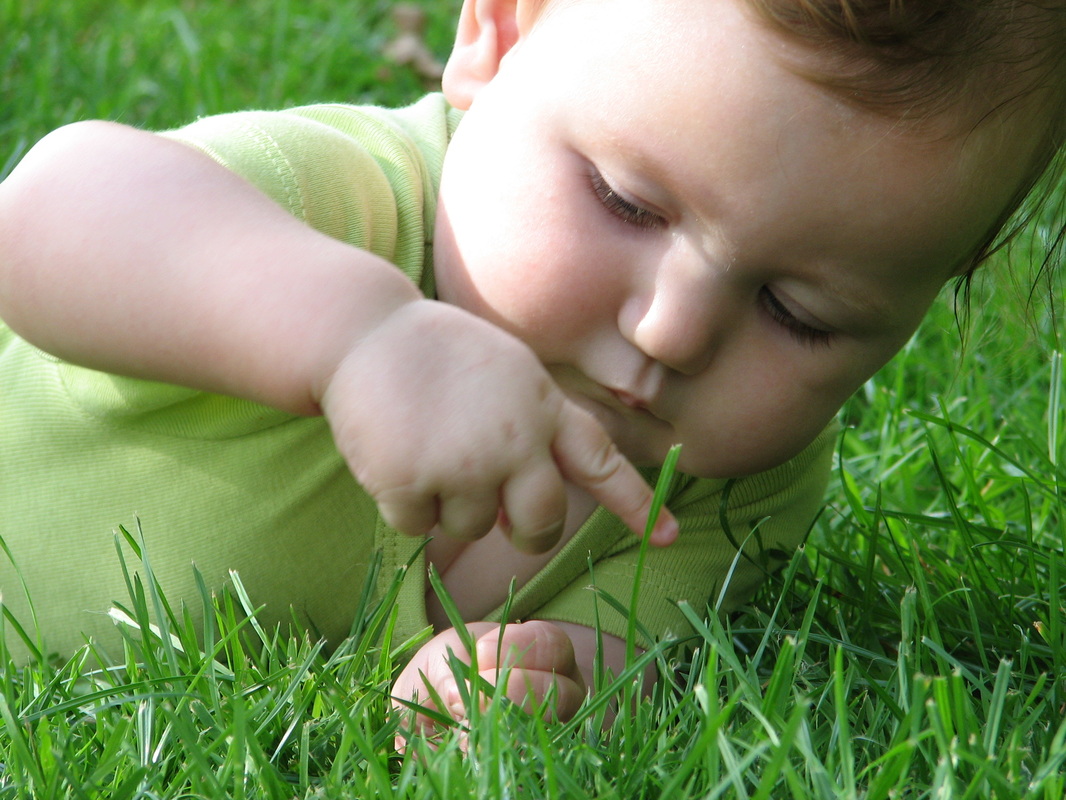
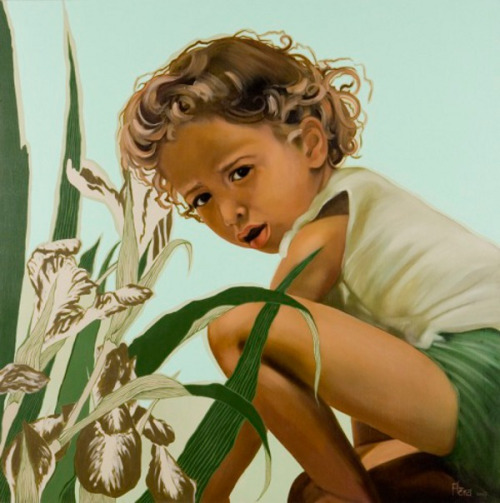
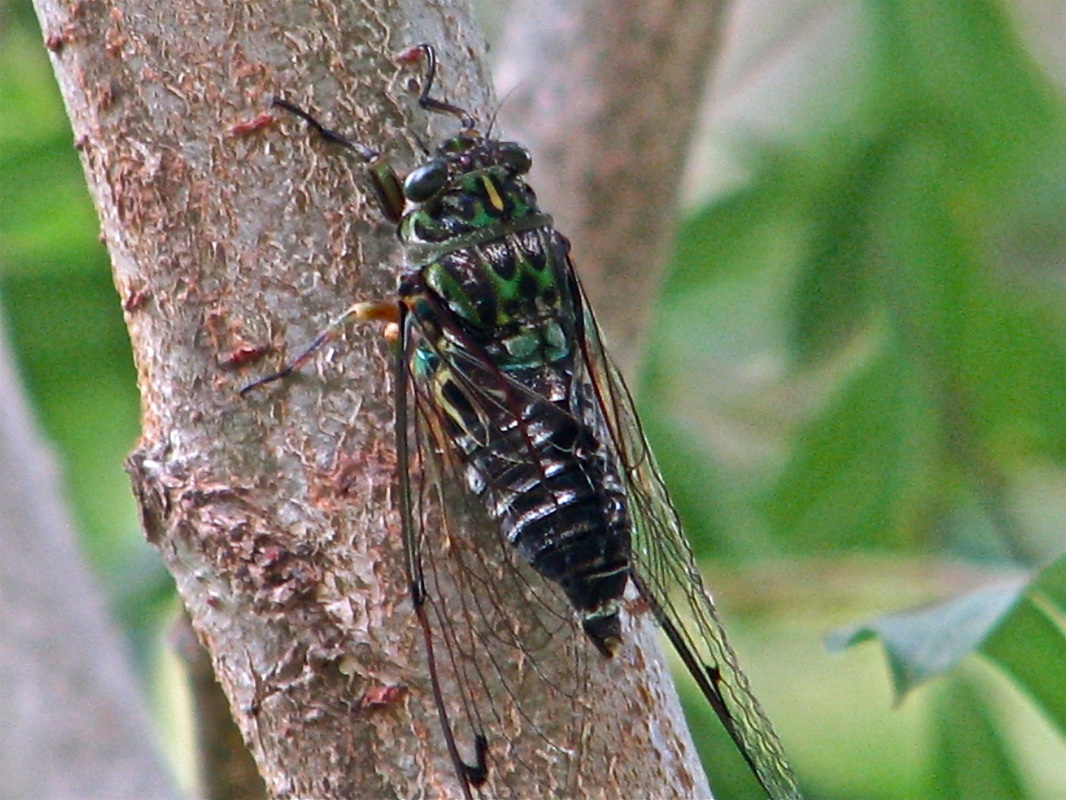
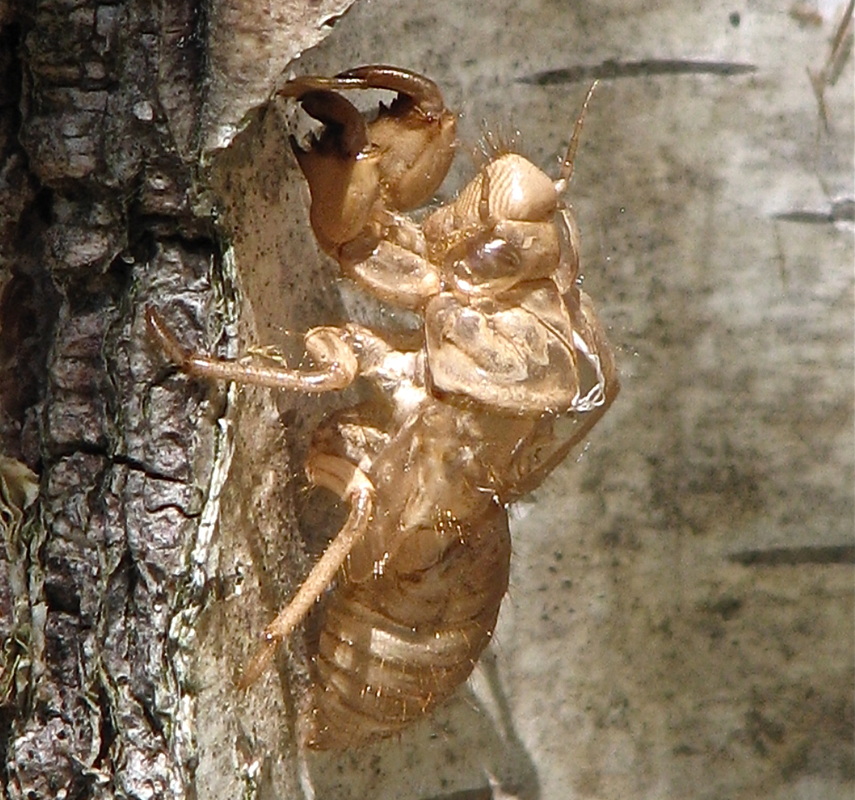
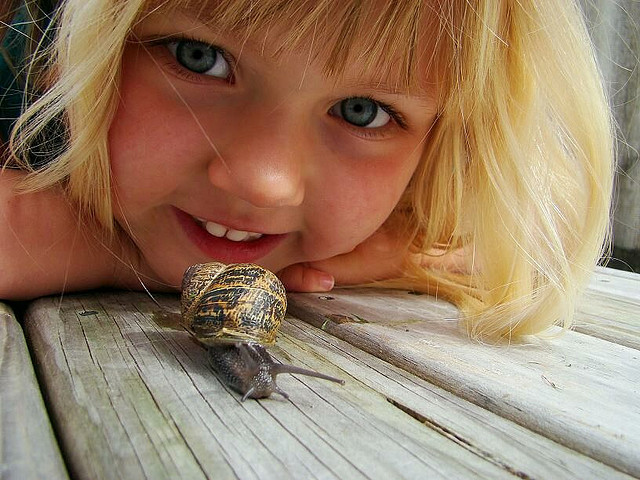

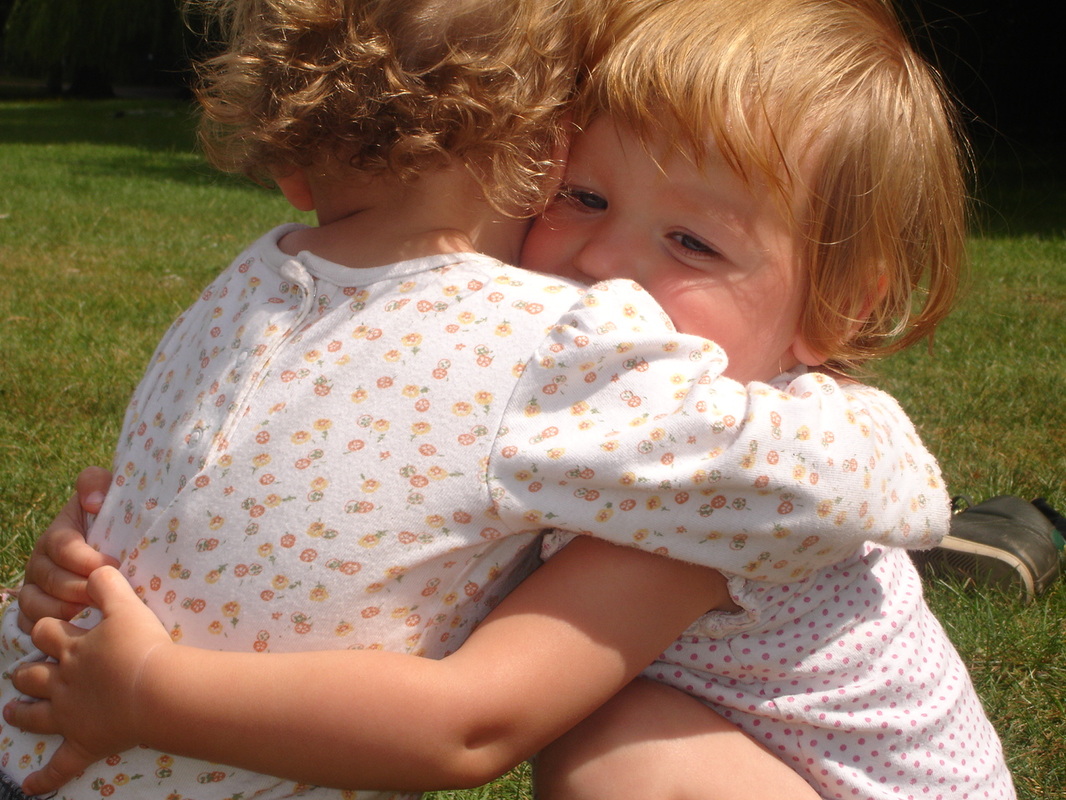
 RSS Feed
RSS Feed
